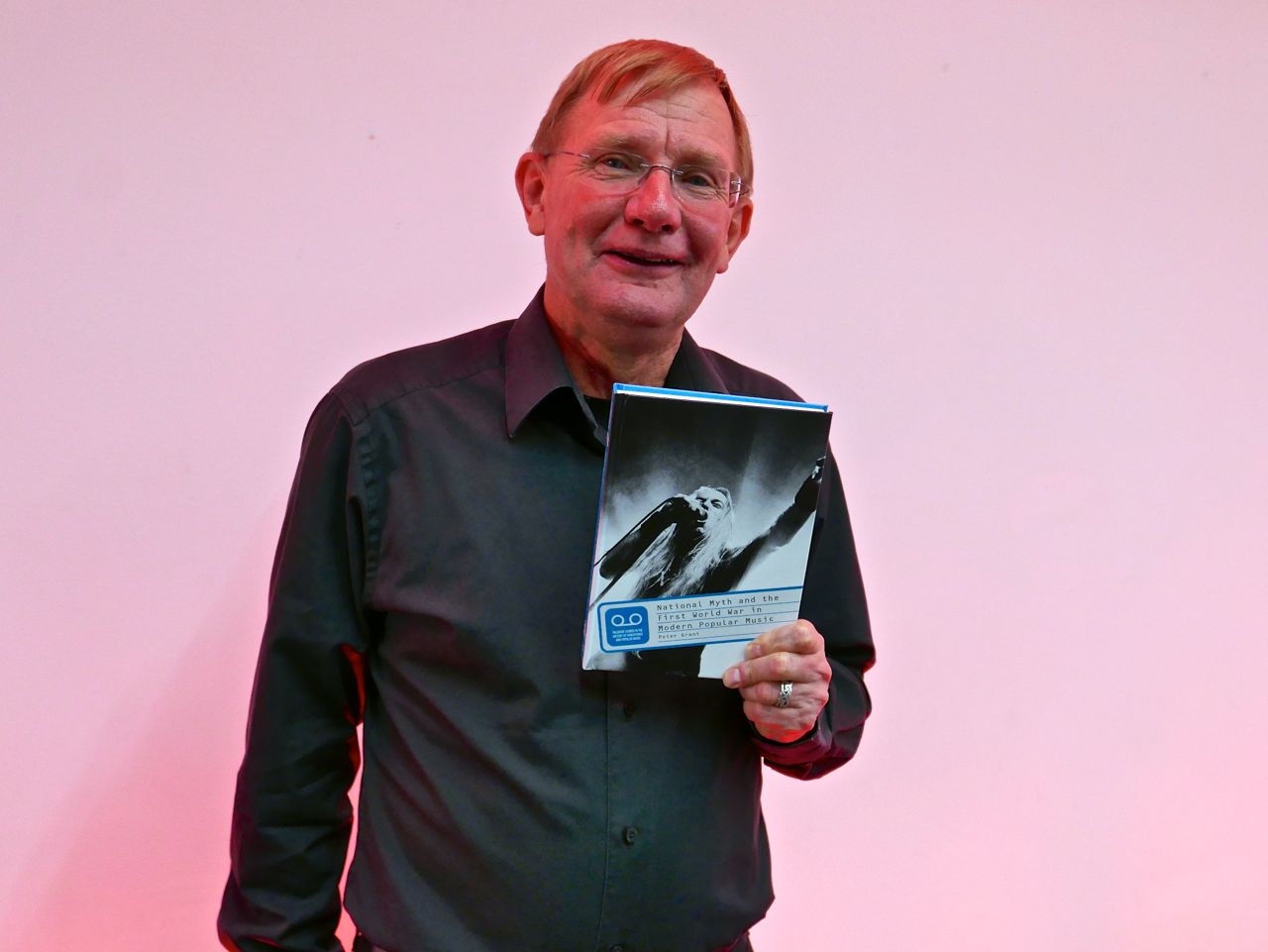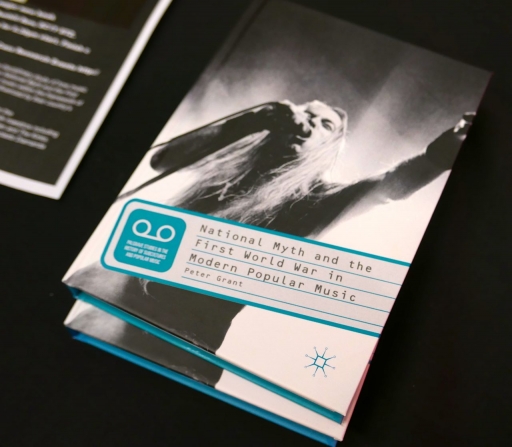Cultural historian Dr Peter Grant talks about his new book charting the influence of the Great War on songwriters from the 1950s to the present day. CN Editor Peter Alhadeff was listening.
It’s a long way from the jaunty refrain of ‘Tipperary’ to the pounding beat of heavy metal, but in recent decades, the First World War has been re-emerging as a source of inspiration for rock and pop musicians.
Since the 1950s, over 1,600 songs from more than 40 countries have been recorded that make reference to, or draw inspiration from, the events of 1914-18, Dr Peter Grant explains.
He regales his audience with an eclectic playlist to illustrate the phenomenon. From Brel to Black Metal, his lecture at the Cass Business School in London, provided an entertaining overview of the astonishing array of genres covered by his book.
Grant’s compilation features some of the best-known giants of the music business, alongside the distinctly niche.
It’s a repertoire stretching from chansonnier Jacques Brel’s anguished cry of Verdun, via the heavy metal of Iron Maiden’s Paschendale to PJ Harvey, and her folk-rock rendition of a survivor’s story from the storming of Chunuk Bair at Gallipoli.
Enduring popular favourites include Eric Bogle’s And the Band Played Waltzing Matilda and No-Man’s Land, covered ‘countless’ times.
 Dr Peter Grant (Photo: Centenary News)
Dr Peter Grant (Photo: Centenary News)
It was not until the late 1950s, first in France, then in Britain and the USA, that popular musicians gave the First World War any significant attention, Peter Grant says.
French songwriters began referencing the war in order to comment on the conflict in Algeria.
“It was only when the First World War became useful as a myth that said something about the modern world, that songwriters began alluding to it,” Grant explains.
Humorous interpretations of the Great War remain very rare in modern popular song, unlike those from the conflict itself, although both the French singer, Georges Brassens, and the gently satirical British duo of Michael Flanders and Donald Swann had a go.
Unsurprisingly, the Christmas truce has proved one of the most fertile sources. But Peter Grant cautions: “A significant problem for writers of songs that combine the First World War and Christmas is that they just get overwhelmed by the mythology. There are so many stereotypes and clichés that even the most skilled songwriter can easily get drawn into sentimentality, banality or outright distortion.”
Less familiar will be the darker themes of martial industrial music, dominant explains Grant, in the countries which were not among the ‘winners’ of the First World War.
In recent years, many artists have moved towards a more transnational interpretation, based around trauma and the concept of the soldier as victim.
Peter Grant is a lecturer brimming with enthusiasm for his subject.
“One of the things that surprised me in this research is that so many of the songs are of such high quality, both musically and lyrically, and there are some quite brilliant ones,” he says.
While his book is an academic publication, this talk makes clear that Dr Grant merits a wider audience.
Dr Peter Grant is based at Cass Business School – City, University of London. National Myth and the First World War in Modern Popular Music is published by Palgrave Macmillan. Peter Grant’s previous books include ‘Philanthropy and Voluntary Action in the First World War’.
Images: Centenary News
Posted by: CN Editor
